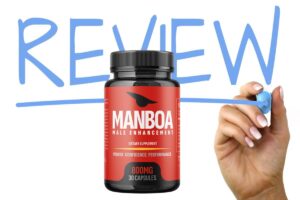When pondering whether pricey vitamins are genuinely worth the outlay, it’s crucial to scrutinise the science underpinning their effectiveness and absorption. Just because a product comes with a hefty price tag doesn’t necessarily mean it delivers tangible benefits. Many individuals may find they can adequately meet their nutritional requirements through a well-balanced diet. Before you dive into those premium options, it’s vital to consider what really counts in supplements. What factors should you weigh to make the most informed choice for your health?
Understanding Vitamin Efficacy: What Science Says
How effective is vitamin E for your health?
Vitamin E is a potent antioxidant that plays a vital role in protecting your cells from oxidative stress, a contributor to chronic diseases. Research indicates it may bolster immune function and promote skin health, with claims of its potential to reduce inflammation.
However, the benefits of vitamin E can fluctuate based on individual health conditions and dietary habits. While some studies suggest that an adequate intake of vitamin E may help lower the risk of certain diseases, excessive supplementation has been linked to negative health outcomes.
It’s essential to focus on obtaining vitamin E from whole food sources such as nuts, seeds, and leafy greens, rather than relying solely on supplements.
Always seek personalised advice from healthcare professionals regarding supplementation.
The Role of Bioavailability in Vitamin Absorption
While understanding the effectiveness of vitamins like E is important, the way your body absorbs these nutrients—known as bioavailability—plays a crucial role in their efficacy.
Not all vitamins are created equal; their absorption can vary based on factors such as the form of the vitamin, your digestive health, and even the presence of other nutrients.
For example, fat-soluble vitamins like E are more effectively absorbed when taken with dietary fats.
If you’re spending money on premium vitamins, it’s wise to consider their bioavailability. A higher price doesn’t necessarily mean better absorption.
It’s essential to verify if the vitamin form is one that your body can utilise effectively.
Ultimately, understanding bioavailability can empower you to make informed decisions that boost your nutrient intake and enhance your overall wellbeing.
The Influence of Marketing on Consumer Perception
As consumers navigate the crowded vitamin market, many find themselves swayed by persuasive marketing tactics that can distort their perceptions of value and effectiveness.
Bright packaging, celebrity endorsements, and claims of superior quality create an illusion of necessity around pricey products. You might feel pressured to believe that higher prices equate to better health benefits.
This marketing manipulation preys on your desires for wellness and self-improvement, making it increasingly difficult to distinguish between genuine product quality and mere gimmicks.
Furthermore, social proof—such as glowing testimonials and influencer recommendations—shapes your choices, leading you to favour expensive vitamins over more affordable alternatives.
To make well-informed decisions, it’s crucial to critically assess these marketing messages and prioritise scientific evidence over catchy slogans.
Price vs. Quality: Is There a Correlation?
Marketing strategies often create the impression that a higher price tag guarantees superior quality in vitamins. However, the relationship between price and quality isn’t always clear-cut.
Numerous budget-friendly brands offer effective formulations that are supported by scientific research, while some premium options may contain unnecessary additives or rely on flashy marketing without delivering proven benefits.
It’s crucial to assess ingredients, bioavailability, and third-party testing rather than simply accepting price as an indicator of quality. Researching the company’s reputation and reading customer reviews can also shed light on a product’s effectiveness.
Ultimately, you should concentrate on what your body requires, balancing cost with quality, to make well-informed choices instead of being influenced solely by high price points. Remember, a higher price doesn’t necessarily equate to the best value.
Common Misconceptions About Vitamins and Supplements
Many Australians mistakenly believe that all vitamins and supplements are essential for optimal health, which can lead to confusion and unnecessary spending.
You may assume that if a little is beneficial, then a lot must be even better, but this isn’t always the case. In fact, most people can meet their nutritional needs through a balanced diet.
There’s also a common misconception that pricier supplements are more effective; however, many affordable options can provide the same benefits.
Additionally, the belief that all natural products are safe and free from side effects is misleading. It’s important to recognise that not all supplements are created equal, and some may even interact negatively with medications.
Evaluating Your Nutritional Needs: Do You Really Need Supplements?
How can you determine if supplements are genuinely necessary for your health? Start by evaluating your diet. If you consistently consume a diverse range of fruits, vegetables, whole grains, and lean proteins, you may be meeting your nutritional needs without the need for additional support.
Consider factors such as age, gender, lifestyle, and any specific health conditions you may have. For example, certain groups, like pregnant women or older adults, may require extra nutrients.
It’s also wise to consult a healthcare professional for personalised recommendations based on blood tests or dietary assessments.
Remember, supplements shouldn’t replace a balanced diet but can be beneficial if you have specific deficiencies.
Ultimately, understanding your unique nutritional requirements is crucial in deciding whether you truly need supplements.
The Impact of Brand Reputation on Pricing
A strong brand reputation can significantly influence vitamin pricing, often leading consumers to pay a premium for perceived quality.
You may notice that well-known brands frequently charge more, relying on their established trust and recognition. This reputation can create a perception of superior efficacy, even if the actual ingredient quality isn’t markedly different from lesser-known brands.
When you see a high price tag, you might assume the product offers better health benefits; however, that’s not always the case.
It’s essential to recognise that marketing strategies can play a significant role in shaping your perception.
Ultimately, while a reputable brand can provide some reassurance, it’s crucial to critically assess whether the price reflects true value or if it’s merely a result of clever marketing.
Making Informed Choices: What to Look for in Vitamins
What factors should you consider when selecting vitamins? Firstly, look for third-party testing to guarantee quality and potency. Seek out certifications like USP or NSF, which confirm that the product adheres to specific standards.
Next, scrutinise the ingredient list; steer clear of unnecessary fillers and artificial additives. Be mindful of the dosage; more isn’t necessarily better, and some vitamins can be detrimental in excess.
Consider your dietary requirements; targeted formulations can often deliver enhanced benefits. Lastly, assess the price in relation to similar products. A high price tag doesn’t always indicate superior quality, so it’s wise to compare products.
Conclusion
In conclusion, while pricey vitamins may catch your eye, it’s crucial to look past the shiny packaging and marketing hype. Prioritise scientific research on efficacy and bioavailability, and assess your individual nutritional requirements before reaching for supplements. For the majority of Australians, a well-rounded diet is often sufficient. By scrutinising ingredient lists and considering brand credibility, you can make savvy choices that emphasise real health benefits over perceived value, ensuring you spend your money wisely for your well-being.


